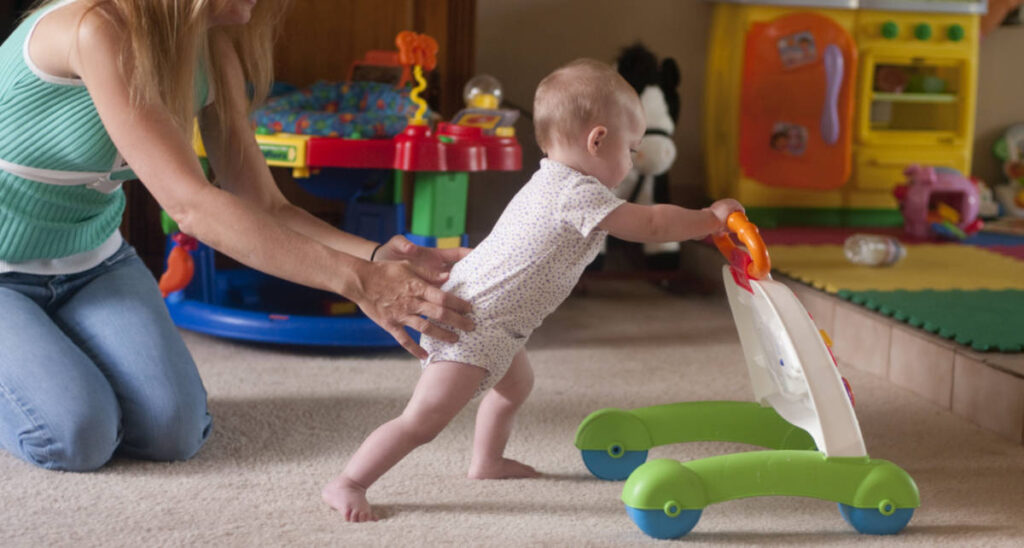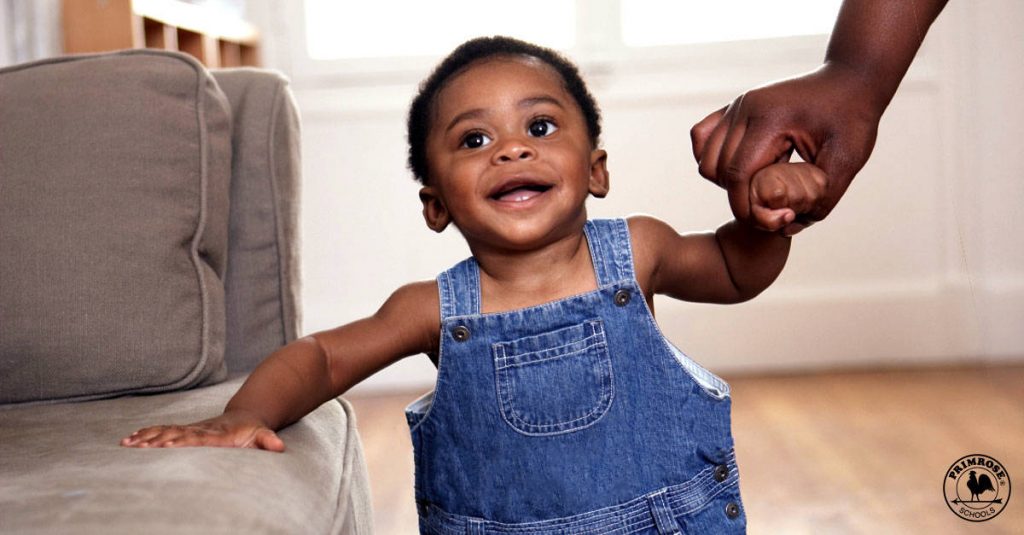How to help your baby learn to walk? Ready to take it up a step? Every parent looks forward with anticipation when their baby takes those first steps, but the timing is different for every child. While some babies may start walking as soon as 9 months, others can need more time and support – that’s where we come in! This article provides seven strategies you can use to make sure your little one becomes an independent walker without delay.

From supporting crawling development to giving them a safe environment; let us help put your bundle of joy on a course toward confidently conquering new worlds two feet at a time!
How to Help Your Baby Learn to Walk?
Walking isn’t just a way to get around; it’s also an important milestone in every baby’s journey toward independence. As parents, we have the privilege of helping our little ones achieve this momentous step – and all it needs is some love, patience, and encouragement! By providing a safe environment for adventure exploration with plenty of tummy time or push toys (or both!), you can help your child find their balance while having fun at the same time. Soon enough they’ll be taking those first steps to freedom without even knowing what hit them!
Tip #1: Encourage Crawling
Crawling is a must-have milestone in babies’ lives! It strengthens their muscles, hones coordination, and sets them up to take those wobbly first steps. To help your little one inch towards independence, place some delightful toys just out of reach for extra motivation – plus floor time galore! And whatever you do: don’t resort to walkers – it won’t get them as far on the path to growing greatness.
Tip #2: Provide Supportive Footwear
It’s no wonder that parents want their little ones to have the best – and it starts with shoes! Finding footwear for your baby isn’t always easy, but there are a few tips. Lightweight and flexible materials ensure feet can move naturally while the grip helps keep them safe from slippery surfaces. To support healthy growth, save thick-soled or rigid designs until they grow up!
Tip #3: Create a Safe Environment
It’s up to us as parents to create a safe space for our little ones. Beyond childproofing outlets and cabinets, you want your home hazard-free with baby gates blocking off any potential danger zones. Add some security plus peace of mind by covering slippery surfaces with non-slip mats – just don’t forget about the infamous walker… give it a miss; those things are notorious tumble catalysts!
Tip #4: Offer Plenty of Tummy Time
Having a strong foundation is key for any baby’s development, and one way to help your little bundle of joy gets that jumpstart? Tummy time! By laying them on their tummies in short sessions each day (carefully supervised by you!), babies can strengthen their neck, shoulder, and back muscles. Plus they’ll be able to work on skills like balance and coordination – all important pieces of the puzzle when it comes to those first steps.
Tip #5: Use a Push Toy

Want to help your little one get their balance? Push toys are a fabulous way for babies to develop coordination and stability. Look out for strong, sturdy playthings with wide bases; they’ll make sure your tot stays safe as they explore the world! Challenge them by gradually increasing how far away from you they can push it – soon enough, there won’t be any stopping ’em!
Tip #6: Practice Standing
Help your little one get off on the right foot! When the baby’s ready, give them an assist in standing and watch their strength grow. Use toys or other objects to help steady and entertain – it’ll fill up those legs with power before you know it!
Tip #7: Be Patient and Encouraging
Watching your baby take their first steps is a magical moment – but we know it can be tempting to compare them with others. Parents, remember that each little one learns at a different pace and all achievements should be celebrated! So hold back on comparisons and enjoy the journey of teaching your child how to walk…patience really is key here.
Conclusion
With a little bit of patient support, you can give your baby the best start to their journey toward independence. From encouraging crawling and tummy time to providing supportive footwear with push toys in tow – all these are essential milestones on their path to conquering those first few steps. So don’t forget to celebrate every tiny achievement along the way! Now that’s what we call growing up (quite literally). You can also visit our blog section for more tips and recommendations!
Reading suggestions:


